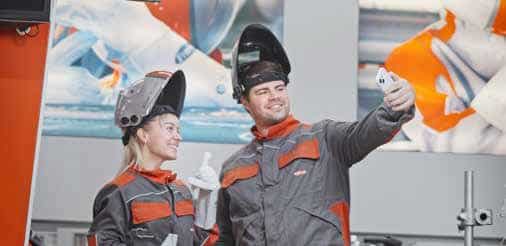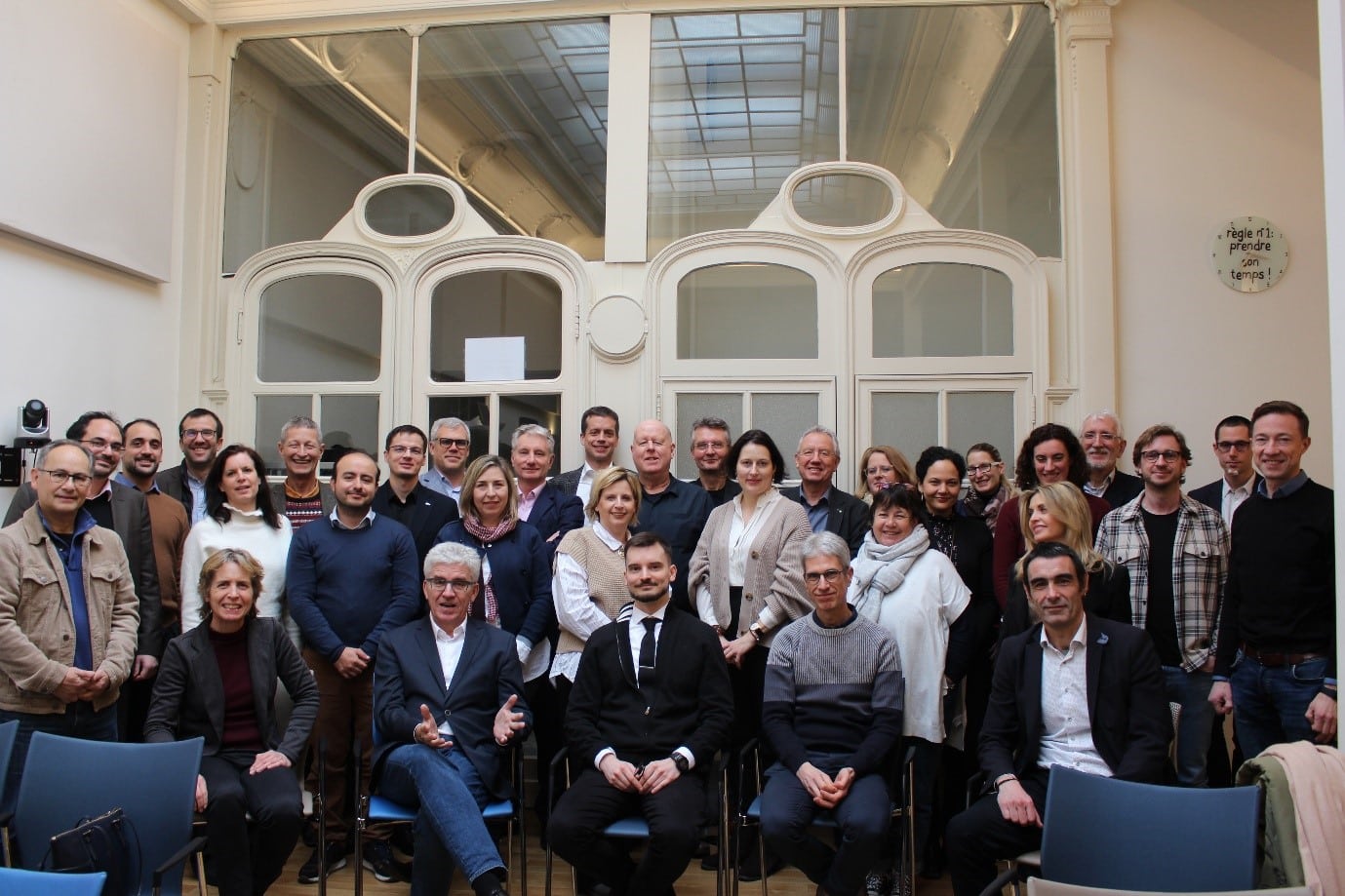Work 5.0
Within the Work 5.0 focus area, we deal with topics relating to people and their further development in the world of work. We also address future talent in the production environment with projects such as Digital Pioneers and Mission: Futurejob. With the EU Horizon project Bridges 5.0, we are working on the European flagship project on Future Skills and Industry 5.0.
The Future of Work
Work 5.0 stands for a new era in the world of work that is characterised by the integration of advanced technologies, artificial intelligence (AI) and increased human-machine collaboration. Employees and organisations are required to continuously adapt their skills portfolio to changing work processes and job profiles.
The idea of human-centered approach lies at the core of Work 5.0: technology should not only make work processes more efficient, but also improve the quality of life and satisfaction of employees. The strengths of man and machine should be optimally combined.
Sustainability and ethical issues also play a key role. Companies are endeavouring to make a positive social and ecological contribution through the responsible use of resources and fair working conditions. Work 5.0 is therefore not just a technical change, but also a cultural change that affects society as a whole.
Human-Centered Approach
Human-centred approaches place people at the centre of production processes and systems. The aim is to design workplaces in such a way that they fulfil the needs and abilities of employees and thus increase their well-being.
In the context of production, this means in particular a combination of ergonomic design and advanced assistance systems. Workers are thus supported in their tasks, e.g. by the systems taking over heavy physical work or facilitating information processing and decision-making.
Human-centred approaches should not only contribute to increasing productivity and quality in production, but also to employee satisfaction and motivation, and thus to the long-term success and competitiveness of companies.
Qualifikations and Competences for Industry 4.0
Industry 4.0 can only be successfully implemented if essential qualifications and competences are taught and a suitable environment for learning and teaching is created. The digital transformation is placing new demands on the skills of companies and their employees, while at the same time digitalisation is changing work processes, structures and forms of organisation.
Increasing requirements, especially in digital and IT skills, data management and data analysis, cross-divisional process knowledge and interdisciplinary work are the result, but leadership skills, social skills and communication skills are also becoming more important.
In order to meet all these challenges, continuous further training in companies is essential. Digital tools such as webinars, MOOCs, AR/XR and ChatGPT as well as various applications such as digital twins, speech recognition and responsive systems can facilitate, support and improve work. They enable time-independent training and further education at different learning locations.
UPCOMING
EVENTS
FURTHER
PROJECTS
PUBLICATIONS
Contact
Phone:
+43 664 88 348 159
+43 664 820 56 50
AKTUELLES ZUM THEMENSCHWERPUNKT
On October 7th, the 4th webinar on Future Skills & AI in the focus area Work 5.0 took place. The event was organized by Plattform Industrie 4.0 as part of the Interreg AT-SK project “Twin City Future Innovation Manufacturing Hub.” […]
On November 12, the 5th webinar on Future Skills & AI within the thematic focus Work 5.0 took place. The event was organized by Plattform Industrie 4.0 as part of the Interreg AT-SK project “Twin City Future Innovation Manufacturing Hub.” […]
A new event format, designed to bring together experts from various fields to discuss major transformation processes, was launched on May 15. […]
Read More… from 1st Transformation Forum of the Plattform Industrie 4.0
The third webinar in the “Future Skills & AI” series, organized by Plattform Industrie 4.0 under the Work 5.0 focus area and as part of the Interreg AT-SK project Twin City Future Innovation Manufacturing Hub, took place on May 13. […]
In the focus area “Work 5.0” and as part of the Interreg AT-SK project “Twin City Future Innovation Manufacturing Hub,” the first workshop on “Future Skills & AI” took place at the end of October. […]
As part of the Interreg AT-SK project “Twin City Future Innovation Manufacturing Hub”, the second webinar in the “Future Skills & AI” series took place in mid-January. […]


